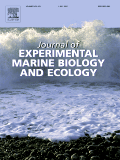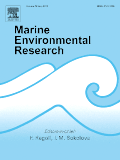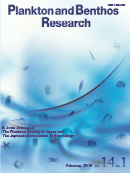
MARINE BIOLOGY
metrics 2024
Connecting Researchers to the Wonders of the Sea
Introduction
MARINE BIOLOGY, published by Springer Heidelberg, is a leading international journal that has served as a crucial platform for the dissemination of research in marine ecosystems since its inception in 1967. With a strong emphasis on the biological aspects of marine environments, this journal stands out in its field, holding a prestigious Q1 ranking in categories such as Aquatic Science and Ecology for 2023. Researchers and academicians will find valuable insights into ecological, evolutionary, and behavioral studies, making it an essential resource for those investigating marine organisms and their interactions. The journal is indexed in key databases and achieves a commendable rank in various Scopus categories, ensuring a broad visibility for published work. As the field of marine biology continues to grow in relevance, particularly in light of environmental changes and biodiversity loss, MARINE BIOLOGY provides an indispensable platform for advancing knowledge and fostering scientific discourse within the global research community.
Metrics 2024
 0.73
0.73 2.10
2.10 2.30
2.30 134
134Metrics History
Rank 2024
Scopus
IF (Web Of Science)
JCI (Web Of Science)
Quartile History
Similar Journals

REVISTA DE BIOLOGIA MARINA Y OCEANOGRAFIA
Connecting Scholars to the Wonders of the SeaREVISTA DE BIOLOGIA MARINA Y OCEANOGRAFIA is a prominent academic journal dedicated to the fields of marine biology and oceanography, published by the Faculty of Marine Sciences and Natural Resources at Universidad de Valparaíso, Chile. Since its inception in 1996, this journal has been a vital platform for disseminating research findings and advancements in aquatic sciences, covering a breadth of topics relevant to the marine environment. With its current impact positioned within the Q4 quartile of both Aquatic Science and Oceanography categories in 2023, the journal serves as an essential resource for scholars, practitioners, and students alike, aiming to enhance their understanding of marine ecosystems. While the journal does not provide open access options, it continues to contribute valuable insights, helping to foster a deeper appreciation for oceanographic science and marine biodiversity. Located in the scenic city of Viña del Mar, Chile, this publication invites manuscripts that push the boundaries of knowledge and stimulate discourse within the marine sciences community, thereby promoting sustainable management and conservation of oceanic resources.

JOURNAL OF EXPERIMENTAL MARINE BIOLOGY AND ECOLOGY
Navigating the Waters of Marine Research and InnovationJOURNAL OF EXPERIMENTAL MARINE BIOLOGY AND ECOLOGY, published by Elsevier, serves as a premier outlet for researchers dedicated to the exploration and understanding of marine organisms and their ecosystems. Established in 1967 and running until 2024, this prestigious journal holds an impact factor reflecting its significance within the scientific community, particularly in the fields of Aquatic Science and Ecology, Evolution, Behavior and Systematics, where it ranks in the Q2 quartile. With a focus on original research and critical reviews, it aims to advance knowledge in marine biology and ecology, fostering a deeper understanding of marine environments that are crucial to biodiversity and ecosystem health. The journal is indexed in Scopus, with impressive rankings highlighted by a 73rd percentile in Ecology and a 68th percentile in Aquatic Science, making it an essential resource for researchers, professionals, and students alike wanting to contribute to and stay informed about advancements in marine ecological research.

MARINE ENVIRONMENTAL RESEARCH
Innovating Solutions for Marine SustainabilityMarine Environmental Research, published by Elsevier Science Ltd, is a premier journal in the field of aquatic science, oceanography, and environmental pollution, with an impressive 2023 Q1 ranking in multiple categories, including Aquatic Science and Oceanography. Established in 1978, this journal serves as a vital resource for researchers, professionals, and students dedicated to understanding marine ecosystems and the impacts of human activity on these environments. It fosters interdisciplinary dialogue, providing a platform for original research, reviews, and case studies that explore critical issues such as marine biodiversity, pollution, and ecosystem health. While the journal maintains a sophisticated peer-review process, it is committed to advancing knowledge without compromising rigorous academic standards. With its strong Scopus ranking, including significant positions in Aquatic Science and Oceanography, Marine Environmental Research continues to play an essential role in shaping the future of marine environmental research and conservation efforts globally.

AFRICAN JOURNAL OF MARINE SCIENCE
Advancing knowledge of Africa's vibrant marine ecosystems.AFRICAN JOURNAL OF MARINE SCIENCE is a premier academic journal dedicated to advancing the field of aquatic sciences and ecological studies, published by Taylor & Francis Ltd. Established in 2003 and based in South Africa, this journal provides a vital platform for researchers, professionals, and students interested in the diverse and dynamic marine ecosystems of Africa. With an impressive impact factor reflected in its Q2 quartile ranking in both Aquatic Science and Ecology, Evolution, Behavior and Systematics categories, the journal showcases innovative research that addresses pressing environmental challenges. Open access options facilitate broad dissemination of knowledge, ensuring that cutting-edge findings are accessible to all stakeholders in the marine research community. As it converges towards its impressive milestone year of 2024, the AFRICAN JOURNAL OF MARINE SCIENCE serves as an essential resource for fostering scientific discourse and collaboration across the continent and beyond.

Plankton & Benthos Research
Pioneering Discoveries in Plankton and Benthic ResearchPlankton & Benthos Research, published by the Plankton Society of Japan, serves as a pivotal platform in the fields of Aquatic Science, Ecology, and Oceanography. With its inception in 2006 and ongoing publication until 2024, this esteemed journal focuses on the complex interactions within aquatic ecosystems, emphasizing the significance of plankton and benthic organisms in maintaining ecological balance. Although it is categorized in the Q3 quartile across several disciplines, it continues to provide valuable insights and a forum for researchers to share innovative findings and methodologies. The journal is not currently open access, which ensures a layer of curator-driven content quality. Its impact, measured through Scopus rankings, showcases its role in fostering knowledge exchange among academics and professionals engaged in ecological and environmental studies. With an ISSN of 1880-8247 and E-ISSN 1882-627X, Plankton & Benthos Research invites contributions that enhance our understanding of the aquatic realm, establishing itself as a crucial resource for ongoing research and advancement in these essential fields.

Journal of Ocean University of China
Exploring New Horizons in Ocean Engineering and OceanographyThe Journal of Ocean University of China, ISSN 1672-5182, is a premier academic journal dedicated to advancing the fields of Ocean Engineering and Oceanography. Published by the esteemed Ocean University of China, the journal serves as a vital platform for researchers, professionals, and students to disseminate groundbreaking findings and foster collaboration in marine science and engineering. With a commitment to quality, the journal currently holds a Q3 ranking in both Ocean Engineering and Oceanography as of 2023, indicating its significant contributions within the scientific community. The journal's scope encompasses a wide range of topics including marine technology, ecological studies, and coastal management, all aimed at enhancing the understanding and utilization of oceanic resources. Although currently not Open Access, it continues to attract submissions from renowned scholars, ensuring a diverse and innovative range of research. By providing access to cutting-edge research and practical insights, the Journal of Ocean University of China plays a critical role in shaping the future of ocean sciences and engineering.

JOURNAL OF OCEANOGRAPHY
Illuminating the Wonders of Our OceansJOURNAL OF OCEANOGRAPHY, published by Springer, stands as a leading academic journal in the field, with an impressive Q1 ranking in Oceanography for 2023. Since its inception in 1992, this journal has dedicated itself to the dissemination of high-quality research that spans a diverse array of topics within oceanography and earth sciences. With an ISSN of 0916-8370 and an E-ISSN of 1573-868X, it plays a crucial role in bridging the gap between academia and practical marine applications. The journal is indexed in Scopus, ranking #57 out of 145 in its category, reflecting its rigorous academic standards and the impact of its published works, reaching a notable ile in the 61st percentile. Located in Japan, the JOURNAL OF OCEANOGRAPHY provides a vital platform for sharing significant research findings that contribute to our understanding of marine environments, aiming to foster interdisciplinary collaboration among researchers, professionals, and students dedicated to marine science.

Russian Journal of Marine Biology
Diving into the Wonders of OceanographyRussian Journal of Marine Biology, published by MAIK NAUKA/INTERPERIODICA/SPRINGER, serves as a vital platform for disseminating research in the fields of Aquatic Science and Oceanography. With an ISSN of 1063-0740 and E-ISSN 1608-3377, this journal has been in circulation since 1996 and continues to contribute valuable insights across its specified domains. Although it currently holds a Q4 quartile ranking in both fields as of 2023, the journal's impact is underscored by its focused niche in marine biology, attracting contributions from a diverse global research community. Researchers and professionals will find its articles essential for advancing their knowledge and understanding of marine ecosystems and biological processes. While not currently an open access journal, the Russian Journal of Marine Biology remains committed to enhancing the scientific discourse aimed at fostering sustainable marine environments.

Indian Journal of Geo-Marine Sciences
Charting New Territories in Oceanographic StudiesThe Indian Journal of Geo-Marine Sciences, published by the NATIONAL INSTITUTE OF SCIENCE COMMUNICATION & INFORMATICS (NISCAIR), serves as a vital platform dedicated to the dissemination and advancement of knowledge in the field of marine and geosciences. As an open-access journal, it allows for improved visibility and accessibility of research findings to a global audience, enabling researchers, professionals, and students to share insights into oceanography and related disciplines. With a publication history spanning from 2007 to 2010 and continuing from 2012 to 2024, it has established itself within the academic community as a reliable source of innovative research, despite being classified in Q4 of Oceanography and holding a Scopus rank that places it in the 27th percentile. This journal is particularly relevant for those investigating marine ecosystems, geological oceanography, and their interconnections, thus playing an essential role in fostering understanding and communication within this important area of scientific inquiry.

MARINE AND FRESHWATER BEHAVIOUR AND PHYSIOLOGY
Fostering Innovation in Aquatic Science and OceanographyMARINE AND FRESHWATER BEHAVIOUR AND PHYSIOLOGY, published by Taylor & Francis Ltd, is a renowned academic journal dedicated to advancing the understanding of the behavioral and physiological aspects of aquatic organisms. Established in 1994, the journal serves as a pivotal platform for researchers and professionals in the fields of Aquatic Science and Oceanography, offering valuable insights into the interactions between aquatic species and their environments. With an impact factor reflecting its significance in the academic community, it occupies a notable position in Category Quartiles, currently ranking Q3 in both Aquatic Science and Oceanography. Researchers are encouraged to explore a wide range of topics reflecting the complexity and diversity of marine and freshwater ecosystems. Although the journal is not open access, its contributions continue to influence both current research and future investigations, making it an essential resource for anyone engaged in the study of aquatic life.